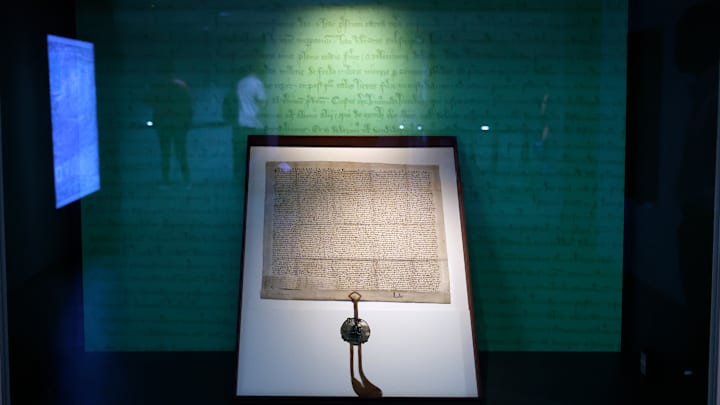The Significance of the Magna Carta

The origins of the Magna Carta can be traced to the turbulent reign of King John, who faced widespread discontent among his barons due to heavy taxation and arbitrary rule. The barons, seeking to protect their rights and limit the king's power, rebelled and captured London. Faced with a rebellion and the threat of civil war, King John agreed to negotiate with the barons, resulting in the creation of the Magna Carta.
One of the most significant contributions of the Magna Carta was its assertion of the principle of the rule of law. It established that the king and his government were not above the law and could be held accountable for their actions. This principle laid the foundation for constitutional governance and the idea that rulers should be bound by laws that protect the rights of their subjects.
The Magna Carta also introduced the concept of due process and the protection of individual rights. It stated that no free man could be imprisoned, deprived of property, or exiled without the lawful judgment of his peers or by the law of the land. This clause laid the groundwork for the development of the right to a fair trial and protection against arbitrary detention, principles that are fundamental to modern legal systems.
Another important aspect of the Magna Carta was its recognition of the rights of the Church and the autonomy of local governance. It affirmed the freedom of the Church from royal interference and acknowledged the rights and privileges of towns and cities. This recognition of local governance and the decentralization of power influenced the development of representative institutions and the concept of limited government.
The Magna Carta also addressed issues of taxation and feudal obligations. It required the king to seek the consent of the barons before imposing new taxes, establishing the principle of no taxation without representation. This principle would later become a cornerstone of democratic governance and was a significant factor in the American Revolution.
Although the Magna Carta was initially intended to address the specific grievances of the barons, its significance extended far beyond its immediate context. Over time, the Magna Carta came to symbolize the broader struggle for liberty and justice. Its principles were invoked during subsequent conflicts between the monarchy and Parliament in England, contributing to the development of constitutional monarchy and the establishment of parliamentary democracy.
The influence of the Magna Carta extended to other parts of the world, particularly to the American colonies. The principles of the Magna Carta were reflected in the United States Constitution and the Bill of Rights, which enshrined the protection of individual liberties and the rule of law. The Magna Carta's legacy is evident in the foundational documents of many democratic nations, which draw upon its principles to uphold justice and human rights.
In contemporary times, the Magna Carta continues to be a powerful symbol of the fight for liberty and justice. Its principles are invoked in legal and political debates, serving as a reminder of the importance of the rule of law and the protection of individual rights. The Magna Carta's enduring legacy lies in its affirmation that no one is above the law and that the rights of individuals must be safeguarded against arbitrary power.
In conclusion, the significance of the Magna Carta cannot be overstated. It established fundamental principles that have shaped the development of constitutional law and democratic governance. By asserting the rule of law, protecting individual rights, and limiting the power of the ruler, the Magna Carta laid the foundation for modern legal systems and the protection of liberties. Its enduring legacy continues to inspire the pursuit of justice and the defense of human rights around the world.